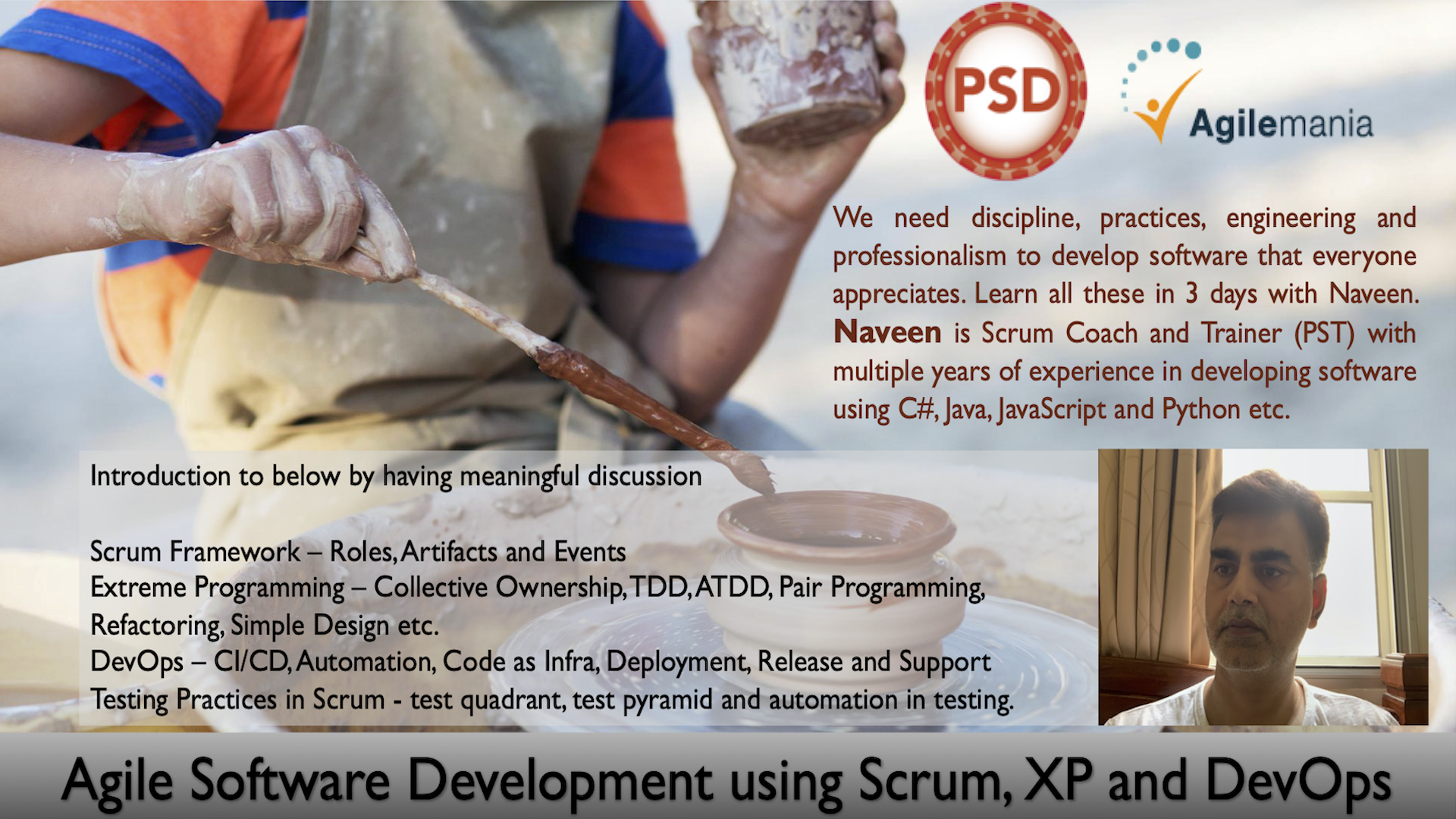Applying Professional Scrum for Software Development
Live Virtual Class, December 8-10, 2020
Class Overview
COURSE OVERVIEW
3-days Agile Software Development training provides a real-world view of what it is like to build software with Scrum, XP and DevOps. Throughout the course, students collaborate together as a team in a series of Sprints where they apply modern engineering practices and use the Scrum framework to cope with changes. Over the 3 days, students learn how to develop increments of potentially releasable functionality from a realistic Product Backlog.
Students concurrently do requirements engineering, design, development, testing, integration, and deployment within a single iteration. The course teaches how Agile engineering practices and supportive ALM tools improve a team’s capabilities even more.
The course is available in C#, Java, C++, JavaScript, Mobile Apps, Python, Ruby and functional programming technologies, or trainers can work with your specific technology stack to make the course meet your specific needs.
Course Topics
- Using Scrum
- Working within a Scrum Team •
- Definition of Done
- Development Practices
- Test Driven Development
- Pair Programming
- Code Review
- Using ALM tools with Scrum
Learning Objective
- Introduction to Scrum Framework, Elements of Scrum
- Test Driven Development – why, what and how
- TDD Cycle – Red, Green and Refactor
- Drive the development (design and implementation) of a User Story
- Learn concept of Emergent Design and why emergent design
- How TDD helps you design software
- Why testing first is better than testing after
- Overview of Refactoring, Clean Code principle and Refactoring to Patterns
- Software design – going deeper in SOLID design Principles
- How to use mocking frameworks
- Behavior Driven Development using SpecFlow/Cucumber
- Specification by Examples using Gherkin language
- Writing Scenarios and Scenario Outlines
- Preparing Steps using xUnit framework
- Difference between TDD and BDD
- How to setup BDD practices within Scrum team
Tools
- ALM – It can either Jira, Team Foundation Server, VersionOne, Trello or Rally
- Continuous Integration – Jenkins, Bamboo, TFS, CircleCI, Team city or Hudson etc.
- ATDD/BDD – Cucumber, Specflow, Behave, Behat, CucumberJS
- TDD – Nunit, Junit, CPPUnit, Rspec etc.
- DevOps – Vagrant, Docker, Ansible, Nagios, Splunk etc.
Key Learning Activities
Hands-on activities (60-70%) and discussion on mentioned topics (30-40%). Hands-on activities include writing unit test, code, writing examples and some group creativity activities.
Target Audience
The Professional Scrum Developer course is intended for all members of a Scrum Development Team; architects, programmers, database developers, testers, and others with some technical knowledge. The class focuses on using technology to deliver software in Increments.
Certification
This course has the Professional Scrum Developer level I (PSD I) as associated credential. All participants completing the Professional Scrum Developer course receive a password to take the PSD I assessment.
This industry-recognized certification requires a minimum passing score on the associated rigorous assessment. Scrum.org maintains a public list with everyone holding a PSD I credential.
Class Details
Taught By
Language
English
Delivery Method
Date
Class Format
TraditionalPartner
AgilemaniaRegistration & Price
Registration for this class has closed
More Information
This is a practical training on modern engineering practices to develop software using Scrum, XP and DevOps. This is NOT a coding training although will be talking about emergent design, coding practices and clean code etc.
Venue
ONLINE


